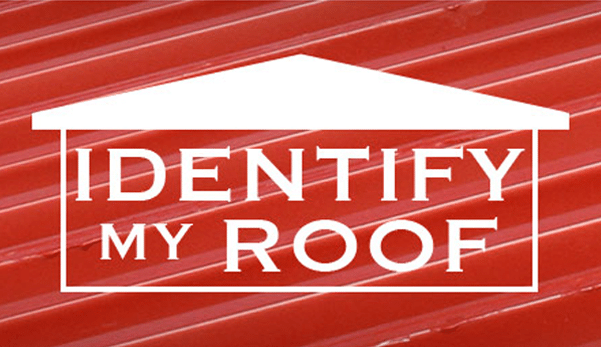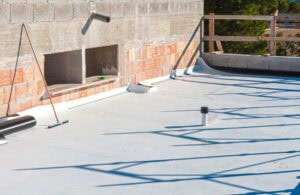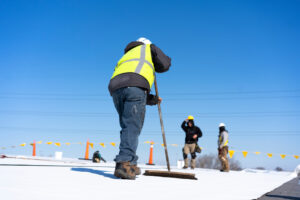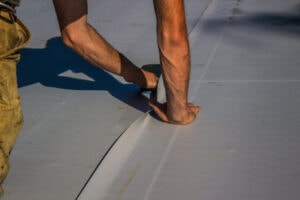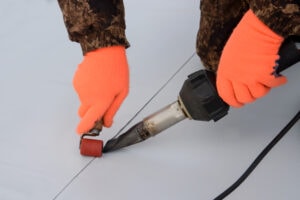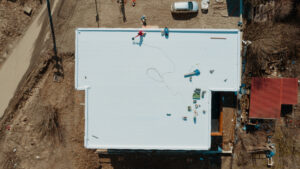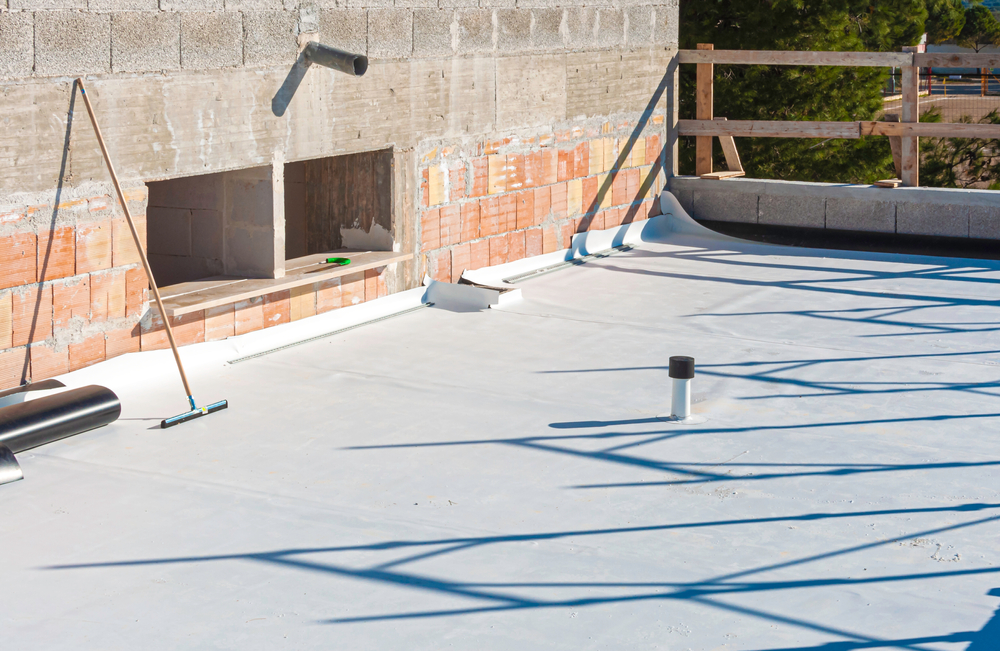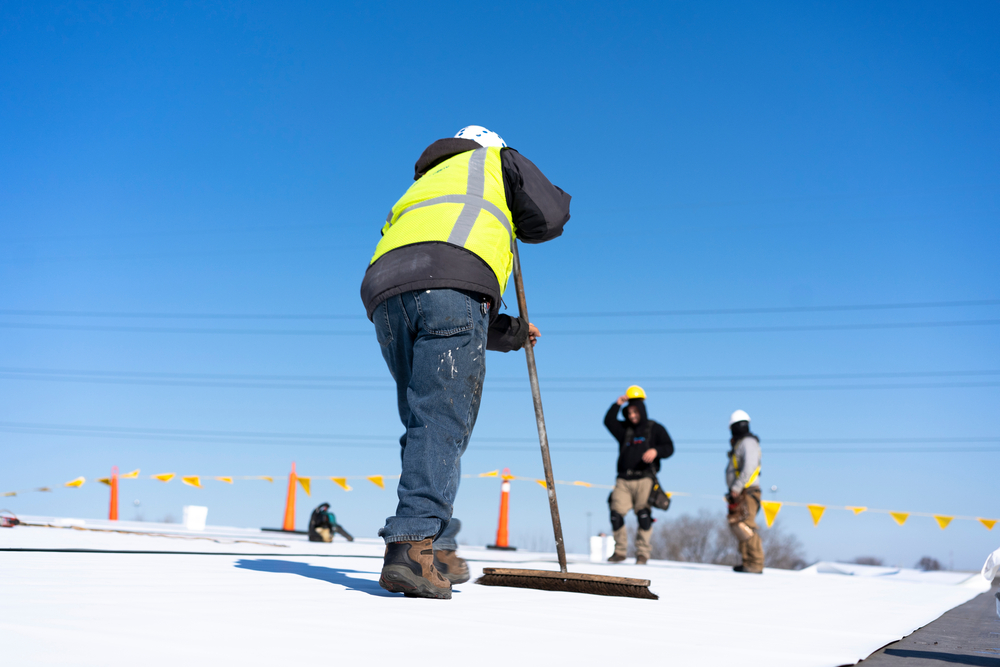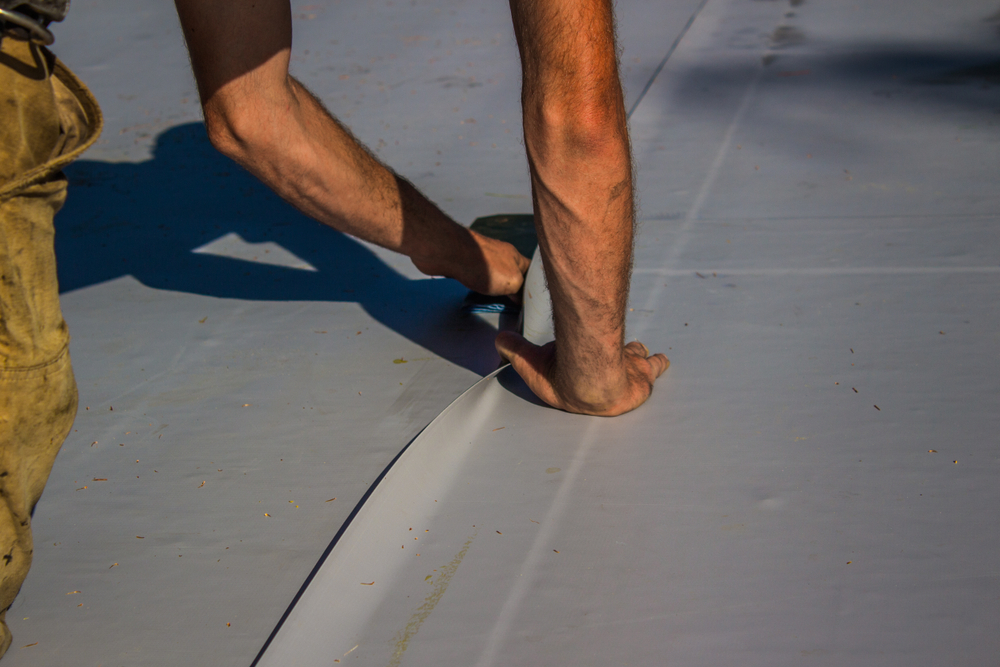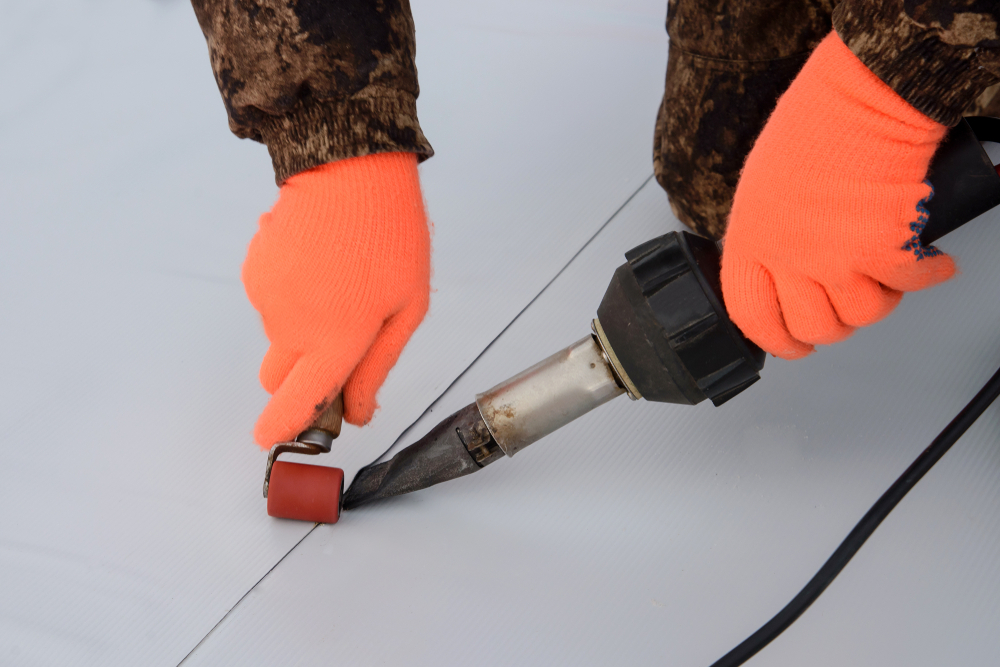Here’s Why Flat Roofing Systems Are Often Best
Buildings used for commercial or industrial purposes typically feature flat or low-slope roofs with very little pitch. Generally speaking, as buildings get larger, that roof pitch tends to shrink farther and farther, to the point where flat roofs are almost universal for the largest commercial buildings. So why are flat roofs so common on larger commercial buildings?
At Moser Roofing Solutions, we provide not only commercial roofing solutions, but commercial roofing expertise as well. The better our customers understand their commercial roofing system, the more equipped they will be to make wise commercial roofing decisions that will protect their business and their bottom line. Let’s take a closer look at flat roofs and the reasons behind their popularity for larger commercial buildings.
Why Are Flat Roofs Common on Larger Commercial Buildings?
Flat roofs are popular for large commercial buildings because they tend to be cheaper to build, they provide practical support for roofing equipment, they’re easy to maneuver around, and they can be covered with a variety of highly durable materials.
Affordable Construction
The higher pitch a roof has, the greater the material requirements will be to complete the roof. A roof that requires a greater amount of materials will naturally cost more, and for roofs with a significantly larger area to cover, the material costs will go up very quickly with just a small increase in the roof’s pitch.
In addition, roofs with very low pitches tend to be quicker to install. This means that business owners opting for a flat roof to cover their commercial building will likely also pay less for the cost of labor to install the roof.
Support and Space for Roof Equipment
Particularly for commercial buildings, the roof is prime real estate for installing equipment vital for maintaining the interior climate of the building. Most commonly, HVAC equipment will be installed on a commercial roof, as well as ventilation systems necessary for maintaining both temperature and moisture levels inside the building. Flatter roofs allow for greater ease of installation for this vital equipment.
Easy to Traverse
Of course, any roof-mounted equipment will need to be regularly maintained in order to ensure perfect functionality. Flat roofs make this task even simpler as well. While foot traffic on any roof should always be kept to a minimum, a roof with very little pitch is quite simple to navigate, and also allows for simple installation of additional equipment such as walking pads or even metal walkways. This helps ensure the safety of maintenance workers and others who may need to access your roof at any given time.
Allow for a Variety of Durable Materials
Flat roofs can be covered by a wide variety of commercial roofing materials, giving building owners plenty of options to meet their roofing needs. In the past, built-up roofing was an especially common choice—its affordability, durability, and longevity made it popular, and it could only be used to install roofs with very little pitch.
While BUR has since fallen out of favor, a wide variety of affordable and durable materials are perfect for flat roofing applications, including EPDM, TPO, PVC, and modified bitumen roofing, to name just a few.
Each of these qualities is especially important for businesses, particularly those for whom a significant portion of their overhead is tied up in the large buildings critical for their everyday operations.
The Disadvantages of Flat Roofs
Flat roofs provide a wide range of benefits that help explain why they’re so common on larger commercial buildings. However, like all roofing systems, flat roofs are not perfect, and the disadvantages of a flat roof should be carefully considered before installation.
The main disadvantage of flat roofs is poorer drainage. Because these roofs have such a low pitch, rainwater may not flow as effectively, and when poorly maintained these roofs will often allow water to collect and create leaks. Flat roofs may also be seen as less aesthetically pleasing than their sloped counterparts—for buildings such as factories and storage facilities this is typically a non-issue, but for storefronts it may be more of a factor.
Moser Roofing Solutions Can Help Determine If Flat Roofing Is Right for You!
In the end, the best way to determine the right roofing system for your commercial roofing needs is to consult with your trusted roofer and discuss all of your options. Moser Roofing Solutions is the leader in commercial roofing throughout Pennsylvania and the Mid-Atlantic region. We specialize in helping business owners choose the right roofing solutions for their needs and delivering high-quality installations, repairs, and ongoing maintenance to ensure a long-lasting roof.
Looking to discuss your roofing options? Contact Moser Roofing Solutions today!

